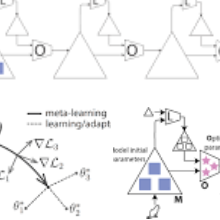Generalization to out-of-distribution (OOD) data is a capability natural to humans yet challenging for machines to reproduce. This is because most learning algorithms strongly rely on the i.i.d.~assumption on source/target data, which is often violated in practice due to domain shift. Domain generalization (DG) aims to achieve OOD generalization by using only source data for model learning. Over the last ten years, research in DG has made great progress, leading to a broad spectrum of methodologies, e.g., those based on domain alignment, meta-learning, data augmentation, or ensemble learning, to name a few; DG has also been studied in various application areas including computer vision, speech recognition, natural language processing, medical imaging, and reinforcement learning. In this paper, for the first time a comprehensive literature review in DG is provided to summarize the developments over the past decade. Specifically, we first cover the background by formally defining DG and relating it to other relevant fields like domain adaptation and transfer learning. Then, we conduct a thorough review into existing methods and theories. Finally, we conclude this survey with insights and discussions on future research directions.
翻译:向外分布(OOD)数据普及是人类的自然能力,但对于机器复制来说却具有挑战性。这是因为大多数学习算法都强烈依赖源/目标数据的i.d.-sumputation,而由于领域转移,这种数据在实践中经常被违反。DG(DG)的目的是通过只使用源数据进行模型学习,实现OOD的概括化。在过去10年中,DG的研究取得了很大进展,导致方法的广泛范围,例如基于域对齐、元学习、数据增强或共同学习的方法等等。然后,我们对现有的方法和理论进行彻底审查。最后,我们通过深入了解和讨论未来研究方向来完成这项调查。



